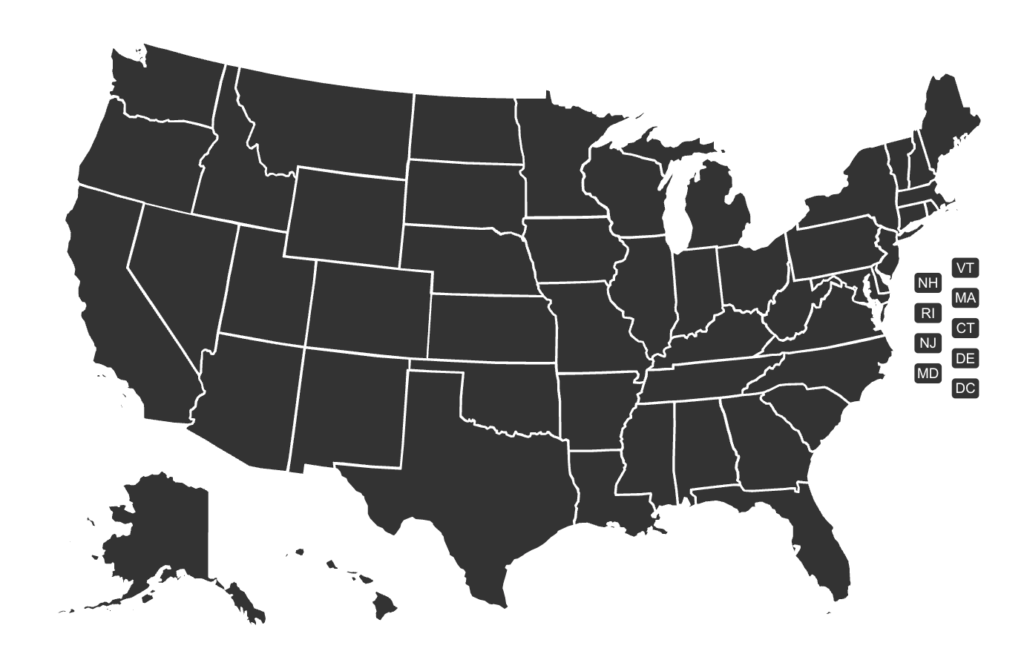Complete Guide to the Adult-Gerontology Nurse Practitioner (AGNP) Specialty
Definition: What Is an Adult-Gerontology Nurse Practitioner (AGNP)?
Less than 10% of nurse practitioners work as adult-gerontology nurse practitioners, and as the average life expectancy in the United States continues to grow, this specialty will become more in demand than ever before. An adult-gerontology nurse practitioner is a nursing professional who dedicates their practice to adult and elderly populations, working to care for people with age-related health issues.
There are two types of adult-gerontology nurse practitioners: acute care and primary care. Acute care practitioners help adult and geriatric patients with health issues that can be fixed quickly, such as an acute illness or injury. Acute care practitioners typically do not provide patients with ongoing care. Primary care nurse practitioners form long-lasting relationships with patients, helping them through the aging process and caring for both acute and chronic conditions. Both types of care are valuable and needed, and both options can provide nurse practitioners with a fulfilling career.
Adult-Gerontology Nurse Practitioner Scope of Practice
If you’re already in the nursing profession, you know that your duties can vary from day to day, depending on the needs of your department and your patients. A typical day in the life of an adult-gerontology nurse practitioner may include:
- Promoting preventive self-care
- Educating patients on health conditions
- Reducing behaviors that may cause illness
- Treating acute or chronic conditions, depending on specialty
- Working to develop health initiative programs
- Advocating for patients and their families
Skills & Abilities
As an adult-gerontology nurse practitioner, there are several skill sets that are necessary to be able to provide proper patient care. Most health care organizations require the following skills and abilities from their adult-gerontology acute and primary care nurse practitioners.
- Communication – As a nurse practitioner, it’s important to be able to communicate effectively with patients and their families. Achieving positive patient outcomes depends on strong communication skills from nurses, especially when it comes to talking to patients (and their caretakers, if applicable) about preventive care.
- Patience – Many older patients struggle with memory issues, and may have a hard time remembering certain instructions. It’s essential that nurse practitioners in this niche are calm, patient, and caring with their patients, even if the patient is engaging in behaviors that have been corrected several times by their care providers.
- Knowledge of geriatric health issues – Older patients have different health issues than younger patients, and it’s essential that you’re able to explain your patients’ conditions in detail. In addition to understanding common patient health issues, it’s vital to stay on top of the latest developments and research in the fields of adult and geriatric health.
- Maximizing patient comfort – Many older patients suffer from chronic conditions for which there is no cure. Adult-gerontology nurse practitioners must be able to provide comfort care, minimizing symptoms for patients while managing side effects.
- Maintaining patient safety standards – From protecting patient data to keeping patients safe from slips and falls, a nurse practitioner is a patient’s advocate, protector, and treatment provider. An adult-gerontology nurse practitioner’s top priority is keeping patients safe at all times.
Adult-Gerontology Nurse Practitioner Certification & Subspecialties
After you complete your program’s coursework and clinical hours, you’ll still need to take your certification exam to officially become a nurse practitioner. While it can feel scary to sign up for such a large test after going through the rigors of graduate school, your online program will leave you well prepared to take the test. It’s likely that your online program will go over test prep strategies to ensure that you’re fully ready to become licensed upon completion of the program. Certification information is as follows:
| Adult-Gerontology Primary Care Nurse Practitioner (A-GNP) | Adult-Gerontology Primary Care Nurse Practitioner Certification (AGPCNP-BC) | |
|---|---|---|
| Organization | American Academy of Nurse Practitioners Certification Board | American Nurses Credentialing Center |
| Cost | $315 for non-members, $240 for members | $395 for non-members, $295 for members |
| Number of Questions | 150 | 175 |
| Eligibility Requirements | Completion of an accredited graduate or post-graduate nurse practitioner program, unencumbered RN license, specific graduate-level advanced practice course requirements | Completion of an accredited graduate or post-graduate nurse practitioner program, unencumbered RN license, specific graduate-level advanced practice course requirements |
While earning an adult-gerontology nurse practitioner degree, many students choose to focus even further on a specific area of care, either by taking specific elective courses or maintaining a focus throughout clinical requirements. This allows students to enter into a niche area of adult-gerontology. While an adult-gerontology nurse practitioner with a subspecialty may still work as a standard adult-gerontology nurse practitioner, a subspecialty can open up career and research opportunities that may not have been available with standard adult-gerontology nurse practitioner training.
Some potential subspecialties for adult-gerontology nurse practitioners include:
- Diabetes care
- HIV/AIDS
- Memory care
- Health policy
- Palliative care
Becoming an Adult-Gerontology Nurse Practitioner
After some experience as a registered nurse, you may be curious about the details surrounding how to become a nurse practitioner. Aspiring adult-gerontology nurse practitioners will need to complete an accredited AGNP program and become licensed and certified in their state. There are several degree types that AGNP students can choose from, including:
The degree type you choose should correlate with your prior education level as well as your career goals. For registered nurses looking to get started in the adult-gerontology field, finding employment in hospitals, clinics, and health facilities that cater to geriatric and aging patients, whether in the acute care or primary care setting, will give you a solid background from which to build on during your online AGNP program.

- Alabama
- Alaska
- Arizona
- Arkansas
- California
- Colorado
- Connecticut
- Delaware
- Washington, DC
- Florida
- Georgia
- Hawaii
- Idaho
- Illinois
- Indiana
- Iowa
- Kansas
- Kentucky
- Louisiana
- Maine
- Maryland
- Massachusetts
- Michigan
- Minnesota
- Mississippi
- Missouri
- Montana
- Nebraska
- Nevada
- New Hampshire
- New Jersey
- New Mexico
- New York
- North Carolina
- North Dakota
- Ohio
- Oklahoma
- Oregon
- Pennsylvania
- Rhode Island
- South Carolina
- South Dakota
- Tennessee
- Texas
- Utah
- Vermont
- Virginia
- Washington
- West Virginia
- Wisconsin
- Wyoming
Adult-Gerontology Nurse Practitioner Employment Opportunities
From 2018-2028, the Bureau of Labor Statistics predicts that there will be an extreme need for nurse practitioners. The need for NPs is expected to grow by 26%. As the baby boomer population continues to age, there will be an increased need for nurse practitioners with a specialty in adult-gerontology.
Common workplace settings for adult-gerontology nurse practitioners include:
- Rehabilitation centers
- Long-term care facilities
- General medicine practices
- Internal medicine offices
- Jails and prisons
- Specialty clinics
- Community clinics
- Ambulatory care centers
Adult-Gerontology Nurse Practitioner Salaries
The average salary for an AGNP is $90,102 per year. This number applies to nurses who have between 5 and 9 years of experience. There are several factors that can affect the total salary for this position, including:
- Location – Total salary will vary depending on cost of living in the area. While a higher salary may seem attractive, it’s important to consider the cost of housing, transportation, taxes, and other factors in the area.
- Organization – The health care organization’s budget will play a role in determining salaries. Nurse practitioners may make more working with a for-profit organization than with a non-profit organization.
- Experience – A high level of experience often lends itself to a higher salary.
- Education – While all nurse practitioners must have at least a master’s degree, additional education (such as a certification or specialty that required additional classes beyond the standard MSN program) may allow for a higher salary.

